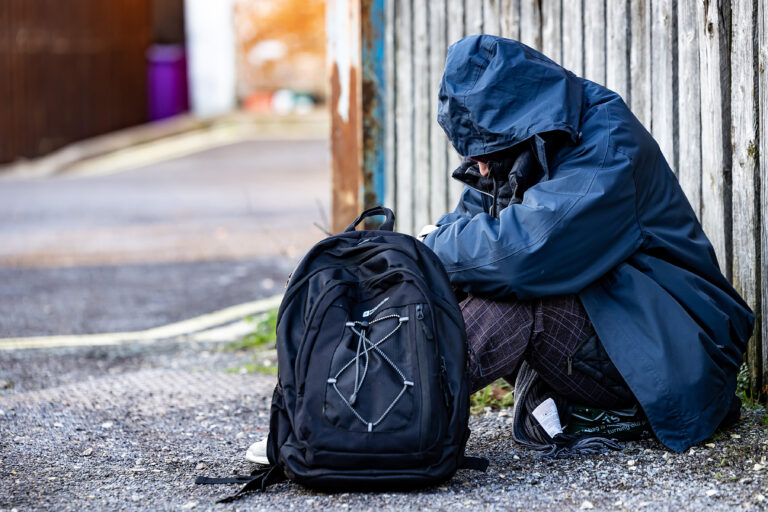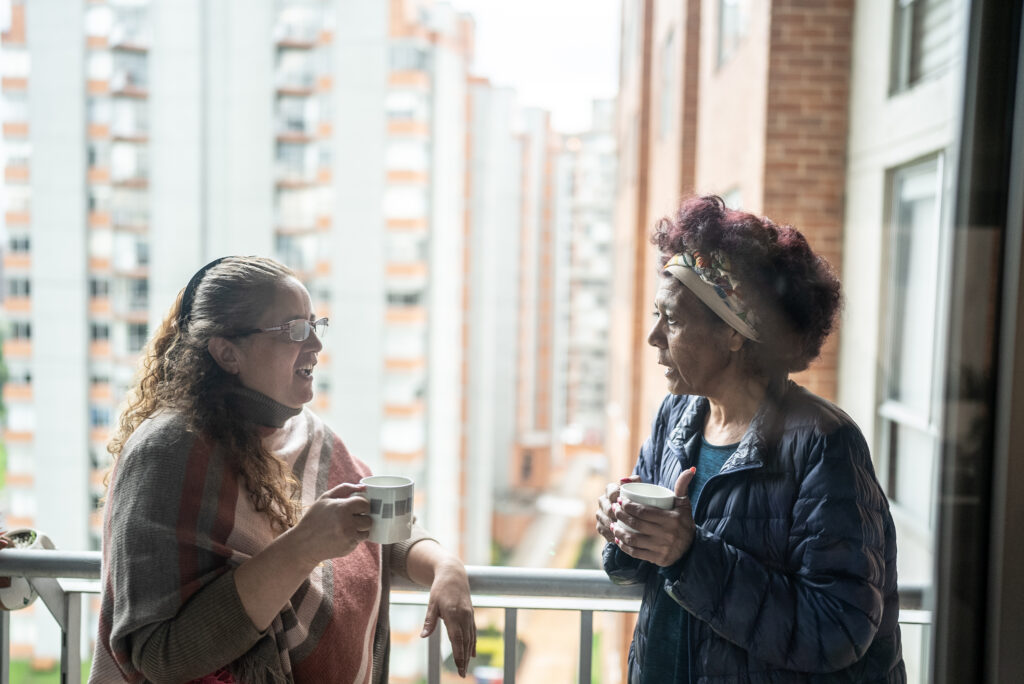Help someone at risk of homelessness
There is support available for all who need it. If you’re worried about someone who might be at risk of homelessness, reach out for help.
Working together we can all make a big difference. Please support the Social Inclusion Partnership to make a real change for people sleeping on the borough’s streets.
Night Light Winter Shelter 2025/26
The Night Light Winter Shelter is looking for volunteers for 2025/26 season. If you are interested and want more information please contact the team.
Walking for Real Change
Thank you to everyone who took part in our Walking for Real Change campaign throughout September 2025 to help raise funds and awareness for people experiencing homelessness in Basingstoke and Deane.
For someone experiencing homelessness, walking isn’t a hobby, it’s a necessity. Homeless people can walk up to 15 miles a day just to find food, safety, shelter or support.
You can still help us raise £10,000 to fund a fully accessible shower and wet room in a local church, offering comfort and dignity to people experiencing homelessness during the colder months.
A simple shower can help someone:
- Feel refreshed and ready to face the day
- Attend job interviews or appointments with confidence
- Take a first step towards rebuilding their life.
Give your time
Donate your time to local homelessness charities, services or local groups and organisations.
Basingstoke Voluntary Action
Basingstoke Voluntary Action represents the voluntary sector across the borough and has a full and up-to-date list of volunteering opportunities on its website.
Camrose Centre
The centre is always looking for volunteers to help with the day-to-day activities, but also seek supporters who can work behind the scenes to administer, guide and lead the centre’s development.
Call 01256 320 877 or email [email protected]
Basingstoke and Tadley Food bank
Volunteers are the driving force behind foodbanks. Whatever role you choose, you will make a real difference to the life of someone in crisis.
Call 07722 673645 or email [email protected]
Donate items


Homelessness charities and organisations need food, toiletries and clothing.
Find out what is needed by contacting the charities listed above or get updates on the Real Change Twitter and Facebook channels – just search Real Change Basingstoke.
Fundraise
Bringing people together is a great way to raise both funds and awareness. There are a lot of inventive and fun ways to get involved, whether it’s with your colleagues, family or friends.
Firstly choose your activity. This could be anything from running a marathon to baking a cake.
Then set up an online page such as JustGiving , and set yourself a fundraising target. To find out how to transfer donations to the Real Change campaign, visit the Donate page . However you choose to fundraise, your support is going to help end homelessness.

Start the conversation

We can all help end the stigma surrounding homelessness and sometimes a simple conversation is a great starting point. There are lots of myths surrounding homelessness. The information below could help you bust some of these myths when talking about this complex issue.
When people think of homelessness, they often think of someone sleeping on the streets, but the reality is much more complicated. Not all people facing homelessness face the same challenges. And some people facing homelessness are not as visible as others.
Rough sleeping
Rough sleeping is the most visible and dangerous form of homelessness. The longer someone experiences rough sleeping, the more challenges they are likely to face including with their long term health prognosis.
Statutory homelessness
Local authorities have a duty to secure a home for some groups of people. The ‘priority need groups’ include households with dependent children or a pregnant woman and people who are vulnerable in some way e.g. because of mental illness or physical disability.
Hidden homelessness
Many people find themselves “hidden homeless”. This can be where people stay with friends in hostels, squats or B&Bs, in overcrowded accommodation or might be staying on a sofa – often called “sofa surfing” in the homes of friends and family. It’s difficult to know how many people may be in this situation.
At risk of homelessness
Some people are more at risk of being pushed into homelessness than others. People in low paid jobs, living in poverty and poor quality or insecure housing are more likely to experience homelessness
Why do people become homeless?
There are any number of reasons why people become homeless. Every person experiencing homelessness has a different journey and a different story to tell. Some will go through life events which will push them into homelessness such as a relationship breakdown, bereavement, the loss of a job, or an issue with addiction. Not being able to afford rent, poverty and unemployment are also factors in why some become homeless.